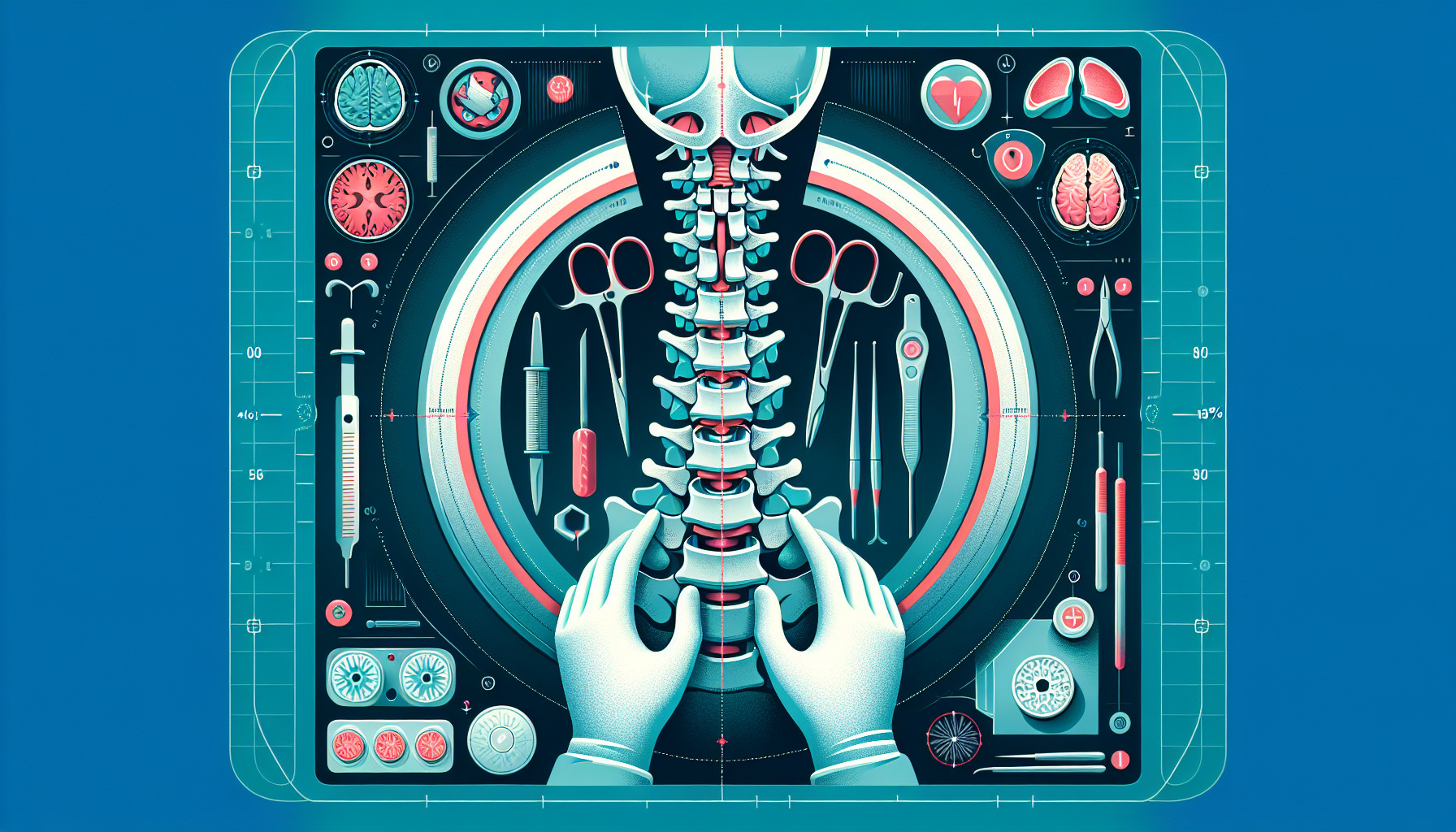Our Summary
This study looked back at data from a previous research project that involved multiple medical centers. The goal was to see if there was any additional benefit to fusing the spine, as compared to just performing decompression surgery, in patients with a narrowing of the spinal canal (lumbar spinal stenosis) who also had a condition where one vertebra slips over the one below it (spondylolisthesis).
The researchers enrolled patients who had both of these conditions and measured their symptoms and ability to function at the start of the study and then again at 6, 12, 24, and 36 months afterwards. They used complex mathematical models to compare the effects of the two different types of surgery, taking into account other factors that could affect the results such as age, sex, body mass index, presence of diabetes, other musculoskeletal disorders, and how long the symptoms had been present.
The study involved 131 patients who had either decompression surgery alone (85 people) or decompression with fusion surgery (46 people). The results showed that both types of surgery were beneficial for the patients, but when all the other factors were taken into account, there was no evidence that fusing the spine led to better outcomes than decompression surgery alone.
FAQs
- What was the main objective of this study on spinal fusion and decompression surgery?
- How were the effects of the two different types of surgery compared in this study?
- Did the study find any additional benefits of fusing the spine compared to just performing decompression surgery?
Doctor’s Tip
A helpful tip a doctor might tell a patient about spinal fusion is that while it can be beneficial for certain conditions, such as spinal stenosis and spondylolisthesis, it is important to understand that the benefits of fusion surgery may not outweigh those of decompression surgery alone. It is crucial for patients to discuss their individual case with their healthcare provider and carefully weigh the potential risks and benefits before making a decision about undergoing spinal fusion surgery.
Suitable For
Patients who are typically recommended spinal fusion surgery include those with:
- Degenerative disc disease
- Scoliosis
- Spinal fractures
- Spinal instability
- Spondylolisthesis
- Spinal tumors
- Spinal infections
- Failed previous spinal surgery
It is important for patients to consult with their healthcare provider to determine the best course of treatment for their specific condition.
Timeline
Before spinal fusion surgery, a patient typically experiences symptoms such as back pain, leg pain, numbness, weakness, and difficulty walking due to conditions such as lumbar spinal stenosis and spondylolisthesis. They may undergo diagnostic tests such as MRI or CT scans to confirm the diagnosis and determine the extent of the spinal damage.
After spinal fusion surgery, the patient will go through a recovery period that includes pain management, physical therapy, and restrictions on activities to allow the spine to heal properly. Over time, the patient should experience a reduction in symptoms and an improvement in their ability to function, with regular follow-up appointments to monitor their progress. It may take several months to a year for the patient to fully recover and see the full benefits of the surgery.
What to Ask Your Doctor
- What are the potential risks and complications associated with spinal fusion surgery?
- How long is the recovery process for spinal fusion surgery?
- What type of physical therapy or rehabilitation will be required after surgery?
- Will I need to make any lifestyle changes or modifications after spinal fusion surgery?
- How long do the effects of spinal fusion surgery typically last?
- Are there any alternative treatments or options to consider before opting for spinal fusion surgery?
- How many times have you performed spinal fusion surgery, and what is your success rate?
- What is the expected outcome for my specific condition and situation if I choose to undergo spinal fusion surgery?
- Will I need to restrict my activities or movements after spinal fusion surgery?
- What is the long-term prognosis for patients who undergo spinal fusion surgery?
Reference
Authors: Ulrich NH, Burgstaller JM, Pichierri G, Wertli MM, Farshad M, Porchet F, Steurer J, Held U; LSOS Study Group. Journal: Spine (Phila Pa 1976). 2017 Sep 15;42(18):E1077-E1086. doi: 10.1097/BRS.0000000000002068. PMID: 28092340
